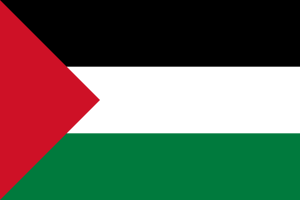Language/Hijazi-arabic/Grammar/Adjectives
Hi Hijazi Arabic learners! 😊
In this lesson, we will learn about adjectives in the Hijazi Arabic language. Adjectives are words that describe, modify or quantify nouns or pronouns. Adjectives are a basic and essential part of constructing meaningful sentences, and they play a significant role in expressing ideas and conveying emotions.
Don't hesitate to look into these other pages after completing this lesson: Questions, Give your Opinion & Negation.
Introduction to Adjectives[edit | edit source]
In the Hijazi Arabic language, adjectives are used to describe the characteristics and qualities of a noun or a pronoun. They are usually placed after the noun or the pronoun that they qualify. Adjectives can take on gender and number markers to match the noun they are describing.
In Hijazi Arabic, adjectives are often used to express emotions, opinions, and observations about the world around us. Using adjectives can add depth and nuance to language, giving speakers the ability to express more complex ideas.
Adjective Gender Markers[edit | edit source]
In Hijazi Arabic, adjectives agree with the gender of the noun they are modifying. If the noun is masculine, the adjective will also be masculine, and if the noun is feminine, the adjective will be feminine as well. This means that adjectives often end with an "a" for feminine and "i" for masculine.
Here are some examples:
| Hijazi Arabic | Pronunciation | English |
|---|---|---|
| رَايِقٌ | rāyiqun | cool (masculine) |
| رَايِقَةٌ | rāyiqatun | cool (feminine) |
| حَسِنٌ | hasinun | beautiful (masculine) |
| حَسِنَةٌ | hasinatun | beautiful (feminine) |
Adjective Number Markers[edit | edit source]
In Hijazi Arabic, adjectives also agree with the number of the noun they are modifying. If the noun is singular, the adjective will also be singular, and if the noun is plural, the adjective will be plural as well. This means that adjectives often end with an "a" for singular and "een" for plural.
Here are some examples:
| Hijazi Arabic | Pronunciation | English |
|---|---|---|
| بالونْ أَحْمَرْ | bālūn 'aḥmar | Red ball (singular, masculine) |
| بالونَاتٌ حُمْرَ | bālūnātun ḥumra | Red balls (plural, feminine) |
| تَفَاحَةٌ خَضْرَا | tafāḥatun khadhrā | Green apple (singular, feminine) |
| تَفَاحَاتٌ خَضْرٌاء | tafāḥātun khadhrā' | Green apples (plural, feminine) |
Adjective Placement[edit | edit source]
In Hijazi Arabic, adjectives usually come after the noun or pronoun that they modify. Here are some examples:
- سَيَّارَةٌ حَمرَاء = Sayyāratun ḥamrā' = Red car
- كِتَابٌ جَمِيلٌ = Kitābun jamīlun = Beautiful book
However, in some cases, adjectives can come before the noun. In such cases, the adjective takes on the gender and number markers of the noun. Here are some examples:
- أَحْمَرُ السَّيَّارَةِ = 'Aḥmaru-s-sayyārati = The red car (masculine)
- حَمْرَاءُ السَّيَّارَةِ = Ḥamrā'u-s-sayyārati = The red car (feminine)
Dialogue[edit | edit source]
Here is a dialogue between two people expressing opinions using adjectives:
- Person 1: الطَّعْمُ اليَوْمُ لَذِيذٌ جِدًّا! (aṭ-ṭaʿmu-l-yawmu laḏīḏun ǧiddan!) (The food today is very delicious!)
- Person 2: مَا شَاءَ اللَّهُ! هُوَ لَذِيذٌ حَقَّاً. (mā šāʾa llāh! huwa laḏīḏun ḥaqqaan.) (God willing! It is really delicious.)
Conclusion[edit | edit source]
In summary, adjectives play a vital role in the construction of meaningful sentences in Hijazi Arabic. They describe, modify, or quantify nouns and pronouns and add depth and nuance to language. Adjectives are often used to express emotions, opinions, and observations about the world around us. To improve your knowledge of Hijazi Arabic, you can use Polyglot Club website. Find native speakers and ask them any questions! You can also find more information about Hijazi Arabic [Language/Hijazi-arabic|Grammar]].
➡ If you have any questions, please ask them in the comments section below.
➡ Feel free to edit this wiki page if you think it can be improved. 😎
Congratulations on finishing this lesson! Explore these related pages to keep learning: How to Use Have & Pronouns.

